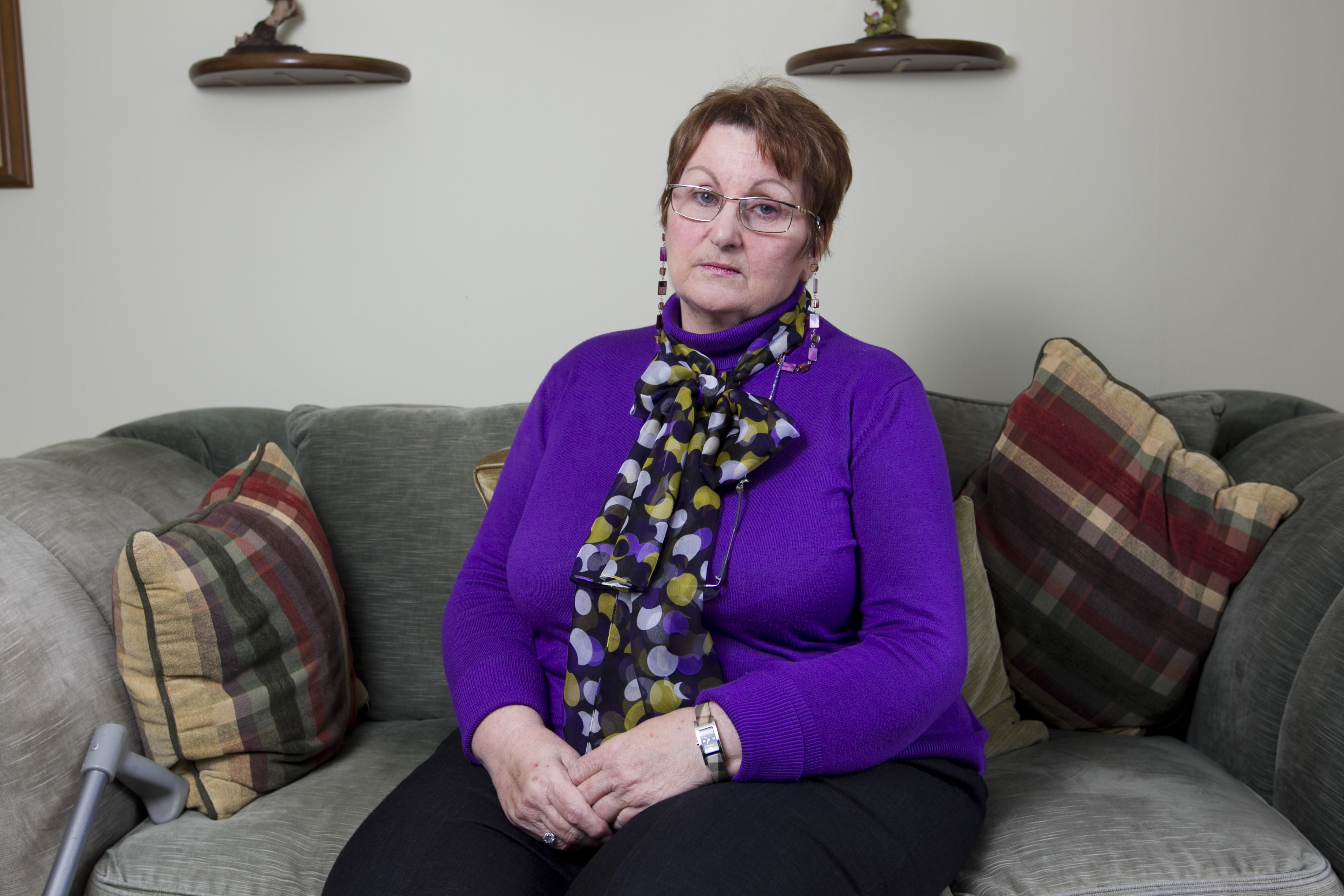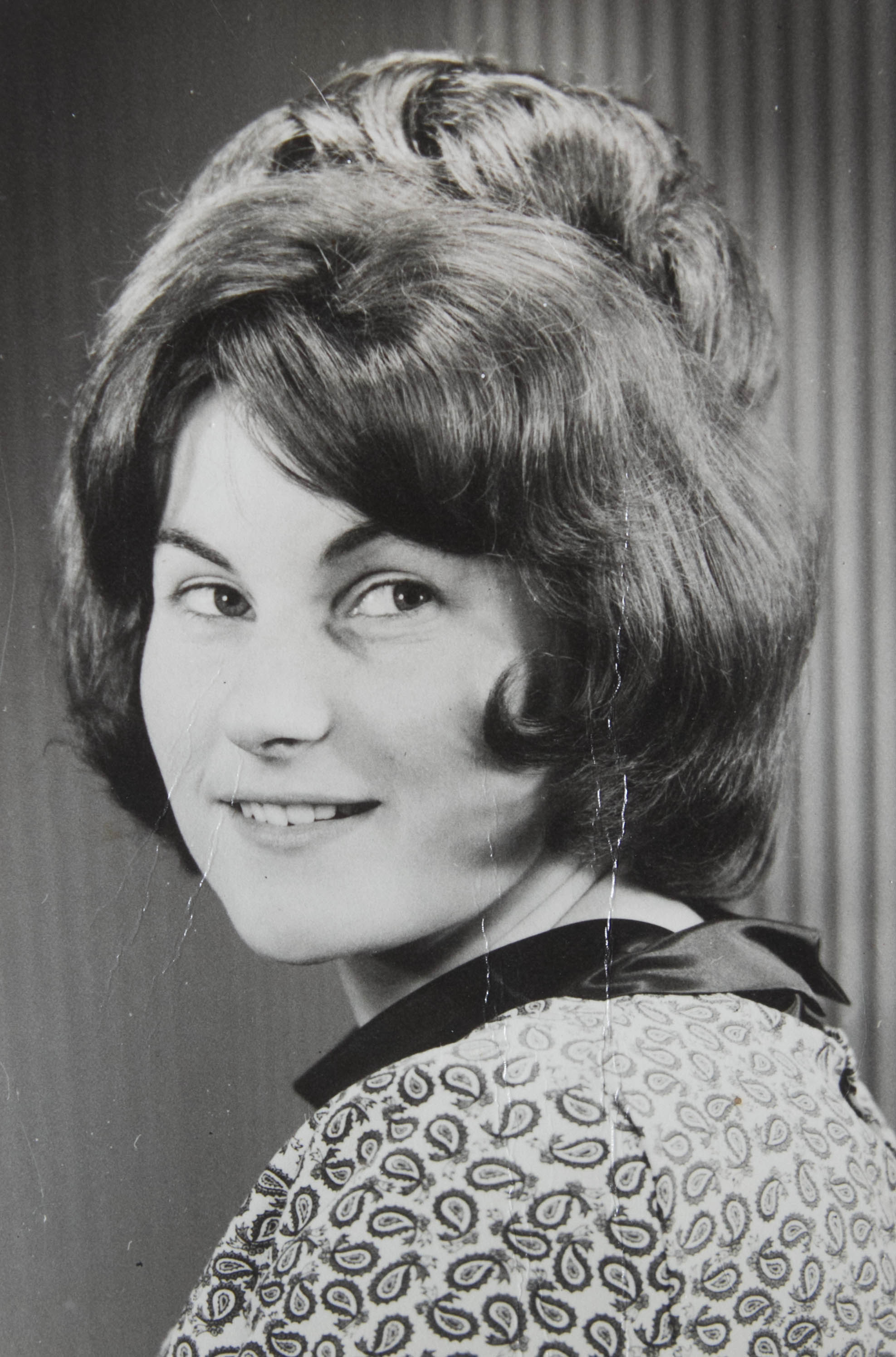Scotland's stolen generation
Marion McMillan was just a teenager when her newborn son was taken away from her – one of the approximately 60,000 Scottish mothers forced to give up their babies between the 1950s and 1970s.
After falling pregnant in 1966, Marion was sent from her hometown of Stranraer to England, where she says she was effectively imprisoned in the Salvation Army’s Hopedene care unit in Newcastle, for almost a year. For the stigma of being unmarried and pregnant, she was forced to give penitence every Sunday, made to go through her labour with no pain relief at all, and suffered harsh punishments from the ‘carers’ and midwives for simply trying to spend more time than allowed with her newborn baby. She was just seventeen-years-old.
After a year of what she describes as emotional torture, during which potential adopters – who Marion refers to as ‘buyers’ – would come and visit the home to find a child, her baby boy was adopted by strangers and taken away.
Now living in Paisley, and dying of terminal cancer, Marion works tirelessly to support a growing movement of campaigners who are demanding the Scottish Government apologises for the role of society at large and of social workers in particular for pressurising women and young girls to give up their babies.
“We were told we had to walk around an annual Christmas fair [put on by the Salvation Army], in and out of all of the rooms where different things were being sold, so that prospective adopters could take a look at my baby.
 Marion McMillan at her home in Paisley
Marion McMillan at her home in Paisley
“There was a home baking stall in one area, hand knitting in another area, tea and biscuits served in another area, goods for sale in another area. I had to move from room to room, and mingle among the invited guests, with my son in my arms - they were prospective adopters – like he was up for sale.”
Marion says she felt “numb” and “helpless”.
“The wee lassie in me keeps thinking – they stole my wean, they stole my wean, they had no right to take my wean from me.”
It would be forty years before Marion met her son, after he spent a decade searching for his mother.
“My son had been looking for me for ten years, but the Salvation Army had told him a pack of lies,” she says.
“He was told that my father was a judge in Scotland, and that his natural father was a doctor.
“When he came to see me, he brought the paper work from his search, it was twelve inches thick.
“That was his ten years of searching for me, and getting nowhere.
“They said my son’s natural father was a doctor, and his grandfather was a judge, so that prospective adopters would think ‘oh, he’ll be a clever boy, let’s take him’.”
Now 71-years-old, Marion has campaigned to get apologies for mums in Australia, Canada, Ireland and Northern Ireland, and has spent the last six years fighting for the Scottish Government to apologise and to put in place support for the mothers who have spent years in anguish.
In 2013, the campaign in Australia was successful, when Australian prime minister Julia Gillard delivered a historic national apology and pledged A$5m – roughly £2.5m – for support services for affected families and to help biological families reunite.
And in 2016, the head of the Catholic Church in England and Wales, Cardinal Vincent Nichols, said sorry for its part in the “hurt” caused, and the Church of England also expressed regret.
The UK Government’s Joint Committee on Human Rights launched a new inquiry in September last year to understand the experiences of unmarried women whose children were adopted between 1949 and 1976, led by Harriet Harman MP.
In January of this year, the Scottish Government launched an online survey, which it said would allow victims to share their experiences, following a members’ debate on forced adoption in Holyrood in June 2021.
A dedicated phone line was also set up in collaboration with the mental health charity Health in Mind, to support women being traumatised by having to relive their experiences.
At the time, children’s minister Clare Haughey said: “It is heartbreaking that in the past there were practices which resulted in some women feeling forced to give up their children.
“The lives of those women, their sons, daughters and wider families have been profoundly changed by the experience, and I offer my sincere sympathies to them.”
A week later, a cross-party group of MSPs - Scottish Lib Dem leader Alex Cole-Hamilton, Labour’s Monica Lennon, the Conservatives’ Miles Briggs, the Greens’ Maggie Chapman and the SNP’s Emma Roddick - wrote an open letter calling for an apology without delay.
The letter reads: “Today, we are united in asking you to offer them a formal apology on behalf of the nation. We come from different parties and represent different communities. However, we all believe that our constituents have suffered enough and need to hear three powerful and healing words spoken in their parliament: ‘We are sorry’.
“An apology cannot right the wrong done to the women, but it will help them to heal and forgive themselves.”
Marion says the stigma that young unmarried pregnant women felt at that time was hard to bear.
“People have to try to enter that mindset to try to understand – one of the worst things was for an unmarried girl to be walking down the street in her community, pregnant, without a wedding ring.
“One of the first things young girls did is they ran down to Woolworths and bought a cheap gold ring and wore it to save the embarrassment.
“We all did it, because it was such a hostile environment.
“At no time in history have unmarried fathers been involuntarily confined in homes in order to rehabilitate them,” said Marion, “that’s one of the ways, in those days, that gender was separate.”
 Marion as a young woman
Marion as a young woman
Monica Lennon, a list MSP for Central Scotland, says what happened amounts to a “scandal”.
“This scandal reflects societal views at the time and that had an impact on the way families responded, the way the National Health Service responded, the way local government at the time responded who had responsibility for some community services.
“Everyone was involved, whether that was nurses and midwives, social workers, etc.
“We have to look at the role of some of these mother and baby houses that were run some by church organisations and other charities. So, it's not about singling out one individual or one organisation or one government because this was over many, many decades and it predates the Scottish Parliament.
“But this was wrong. This was a system failure. It was a human rights abuse. And we should never allow anything like that to ever, ever happen again.
“We’ve said sorry, and we've pardoned gay men, who were criminalised for having sex with other men. That that was a bad law at the time, that ruined people's lives - that shouldn't have happened.
“When First Minister Nicola Sturgeon gave that apology [in November 2017], no one was expecting her to be held personally responsible for what happened, it was long before Nicola Sturgeon’s time in politics, and similar to this, Nicola Sturgeon wasn’t born when many of these women had their babies stripped out of their arms – though in some cases she would have been alive.
“But it's about the government today. Having a duty of care to their citizens and just trying to acknowledge the past because we have to learn from our history and it’s still very recent history.”
Miles Briggs, a list MSP for the Lothian region, has been working closely with Lennon on campaigning for an apology.
“Over the last eight to 10 months now,” Briggs said, “there has been growing frustration, especially from campaigners, that we've not seen progress made to firstly deliver the apology, but then also to start the work which will be needed to support individuals.
“That’s both individuals who gave birth but also children who may be young adults or adults in general coming forward now, who have been the ones who were adopted.
“So there's a lot of work needing to go beyond that, but I think is important that we have got that genuine cross party support.
“I think there's an overwhelming majority of MSPs, though, and in fact, I’d almost put my neck on the line and say every MSP wants to see this apology made as soon as possible.
“And I think that's where the government has been disappointing us all for a wee while now that the First Minister hasn't been able to make that apology and the consultation and things which they've brought forward, actually kind of feel like there isn't the real, genuine commitment to get this apology made.”
Marion, who met and married her husband George not long after she returned to Scotland from the baby home, went on to have three more children.
While she never forgot the ordeal she was put through, she wants to use the little time she has left to bring more compassion into the world, and to start the healing process for other victims – and that begins with an apology.
“I don’t have a lot of time,” said Marion, “I would just love to sit down with the people who are interested, and real people of interest, and just tell them how a bridge of compassion should be built for the future.
“Within that bridge of compassion – there are routes, and one of them is that forced adoption should be buried in the annals of history, because every right that the mother had was ripped from underneath the mother’s feet.”
Holyrood Newsletters
Holyrood provides comprehensive coverage of Scottish politics, offering award-winning reporting and analysis: Subscribe